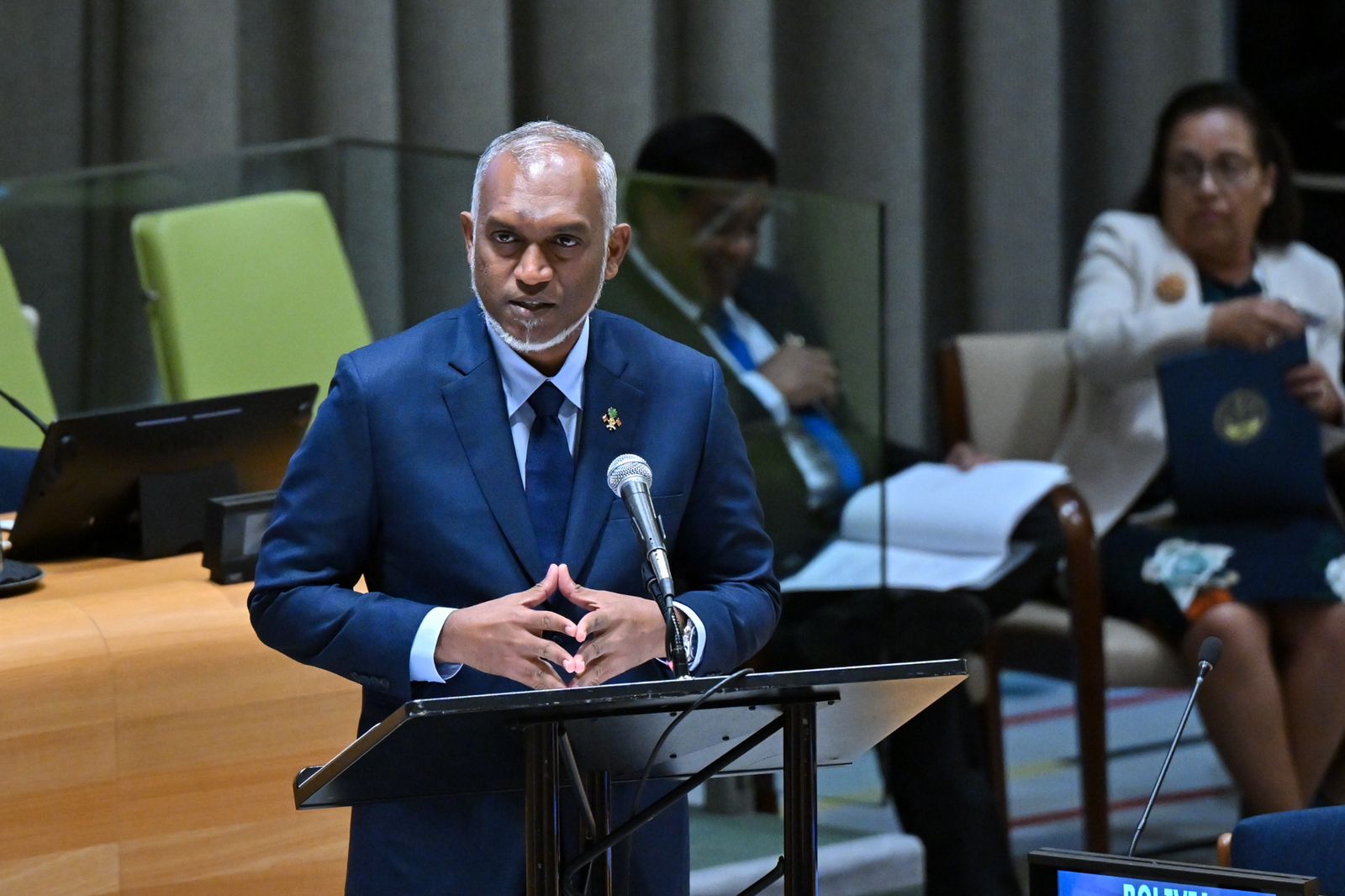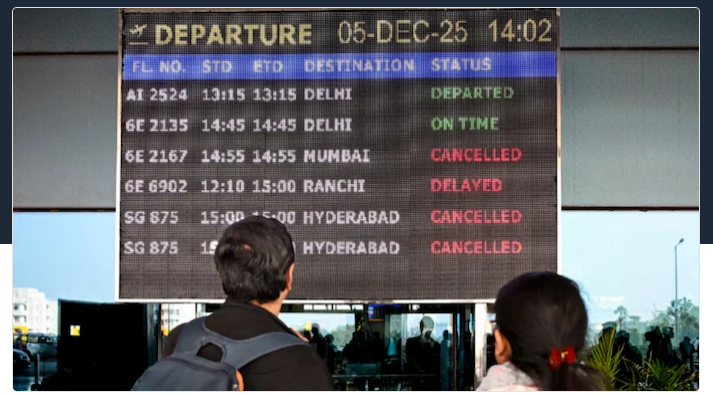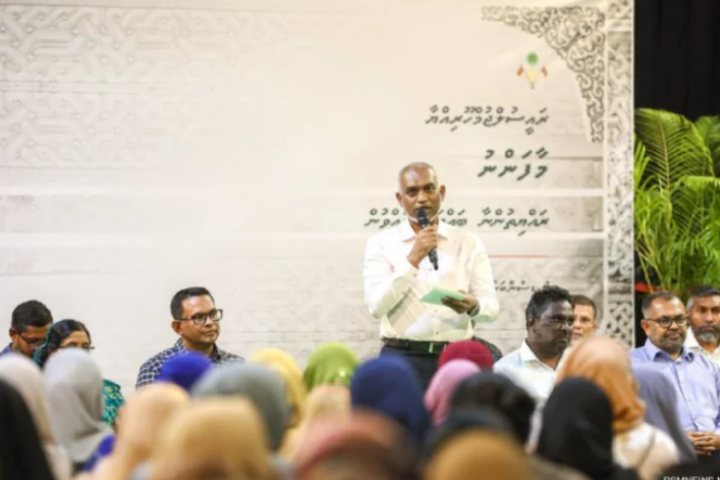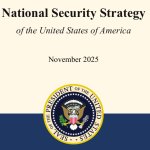NEW YORK — In a stark appeal to the international community, President Mohamed Muizzu stood before the United Nations General Assembly today, calling for urgent and unified global action to combat the existential threat of sea-level rise. Speaking at a high-level plenary meeting on sea-level rise, President Muizzu reminded world leaders that for small island nations like his, the danger is not theoretical—it is happening now, and it threatens the survival of entire communities.
“An emergency is upon us,” Muizzu warned, echoing the call for action first made by the Maldives in 1989 during the world’s inaugural international conference of small states on sea-level rise. “It is threatening our way of life, our cultural identity, and our heritage.”
The high-level meeting, held during the General Assembly’s High-Level Week, focused on building consensus, mobilizing political leadership, and promoting international cooperation. Muizzu framed the issue not only as a technical or financial challenge but as a fight for the survival of his nation and other low-lying states facing the brunt of climate change.
Muizzu’s address outlined three critical actions that the world must take to prevent small island nations from being submerged by the rising seas.
First, he called for a dramatic increase in adaptation finance, urging world leaders to double the resources allocated for climate adaptation. He criticized the current imbalance between mitigation and adaptation funding, pointing out that coastal communities need immediate help to cope with the worsening impacts of climate change. “We ask to remove the tedious approval procedures, and conditions to access finance,” Muizzu urged, emphasizing the need for financing on a needs basis. He called for the inclusion of the Antigua and Barbuda Agenda for Small Island Developing States (SIDS) into the international development framework as a necessary step forward.
Second, the president demanded the operationalization of the Loss and Damage Fund, a mechanism meant to provide financial aid to countries already experiencing the destructive impacts of climate change. The urgency of this fund, long discussed but still not functional, was underscored by Muizzu’s insistence that island nations can no longer wait for pledges and discussions.
Finally, Muizzu urged for the swift transfer of climate technologies to the most vulnerable states. He argued that the scientific knowledge and technological tools exist to combat climate change, but these solutions remain inaccessible to the countries that need them the most. “We have the will to thrive,” he declared, closing his speech with a passionate call to action. “Our call to action, our fight to live on, will survive.”
Muizzu reminded the audience that the Maldives has been on the frontlines of this battle for decades. In 1987, the capital city Malé was inundated by sea swells, an early warning of the catastrophic future small island states face. The Male’ Declaration on Global Warming and Sea-Level Rise, drafted two years later, recognized sea-level rise as a “common concern for humankind.” It also called for urgent action and resources, a call that Muizzu stressed has been largely unheeded for over three decades.
Today, as world leaders gathered at the UN, Muizzu’s message was simple but powerful: time is running out. “Without support towards our specific adaptation needs, the targets set out in the Paris Agreement, and the 2030 Agenda cannot be achieved,” he said, urging for a unified global response to climate change that prioritizes those most at risk.
The high-level meeting is taking place just after the Summit of the Future, where leaders discussed long-term strategies for global challenges. However, for Muizzu and the Maldives, sea-level rise is not a distant future concern—it is an immediate and escalating crisis that demands action today.










